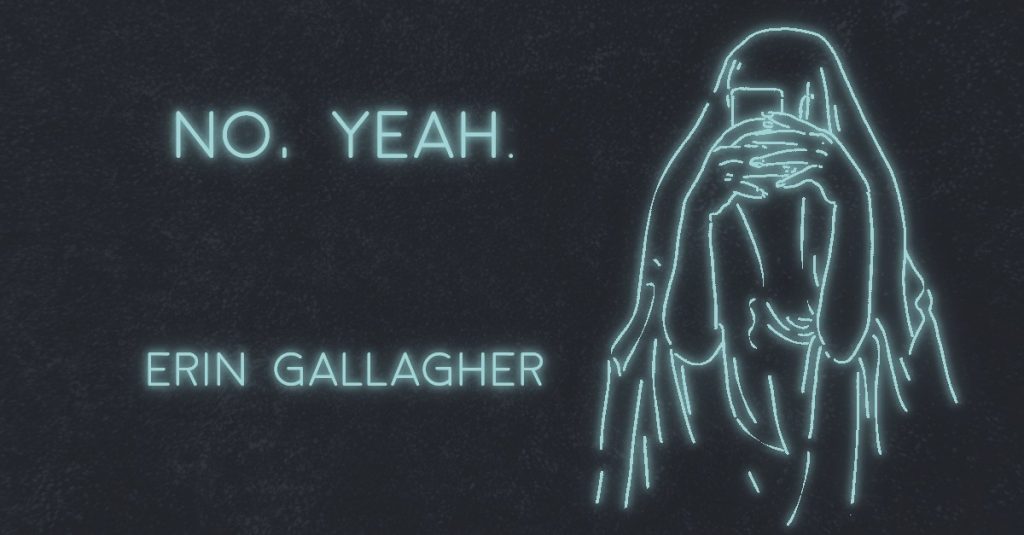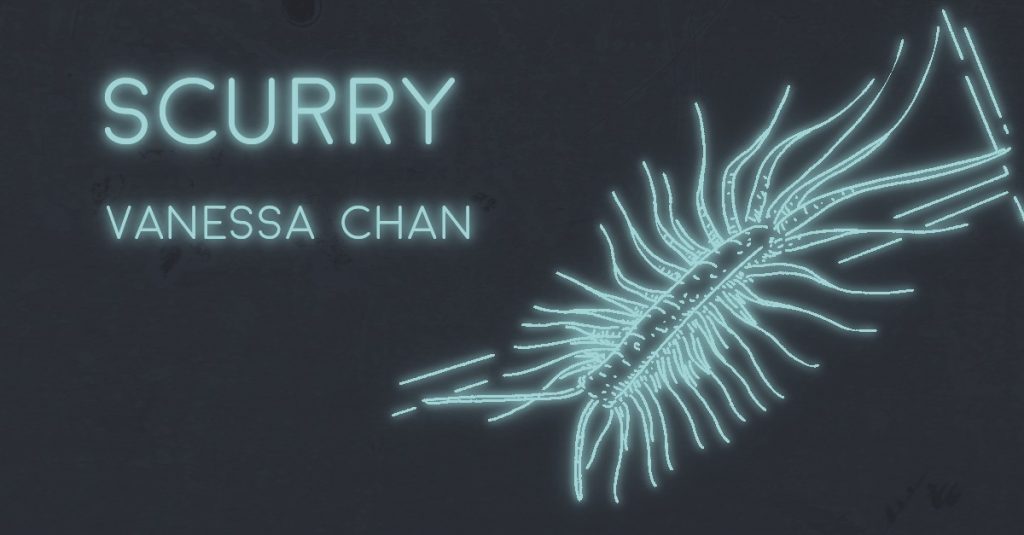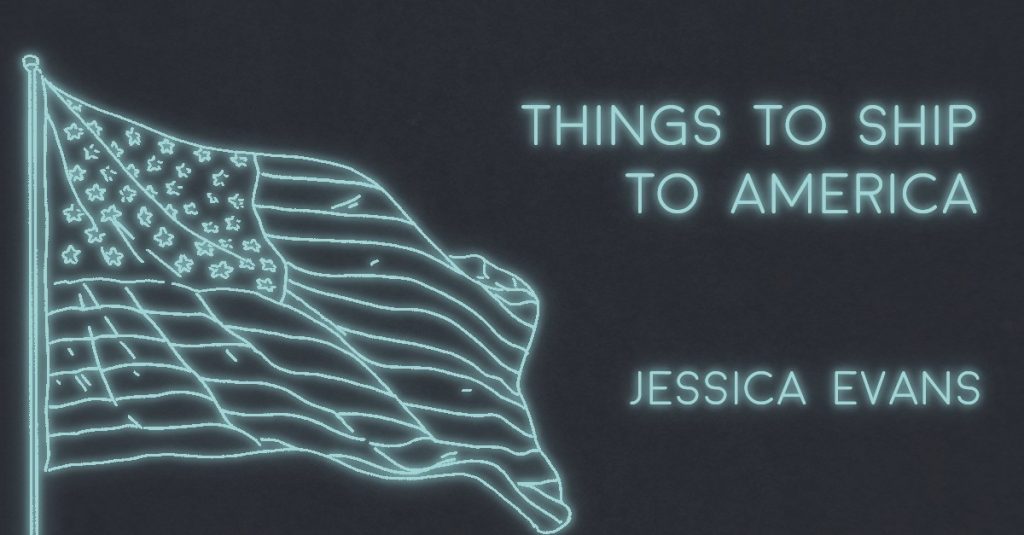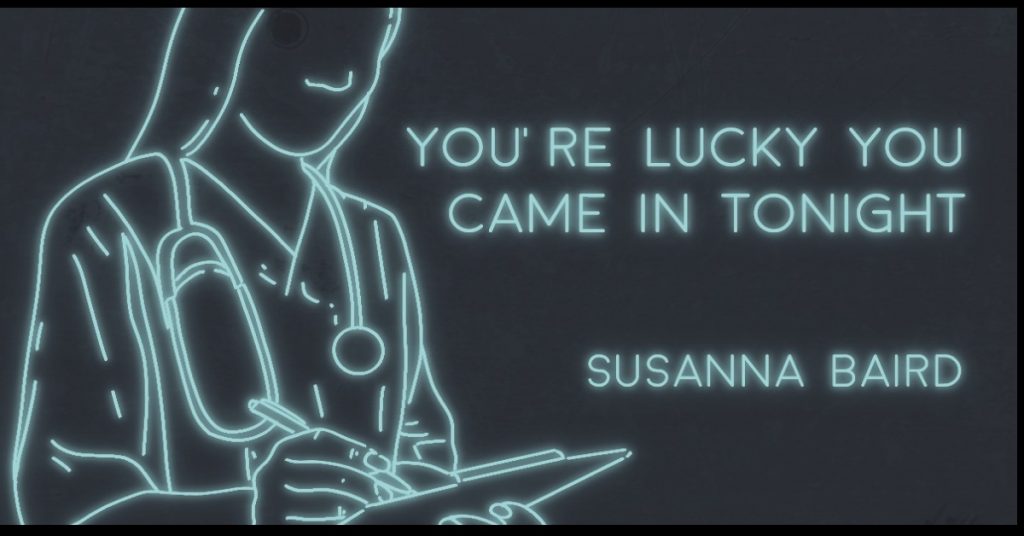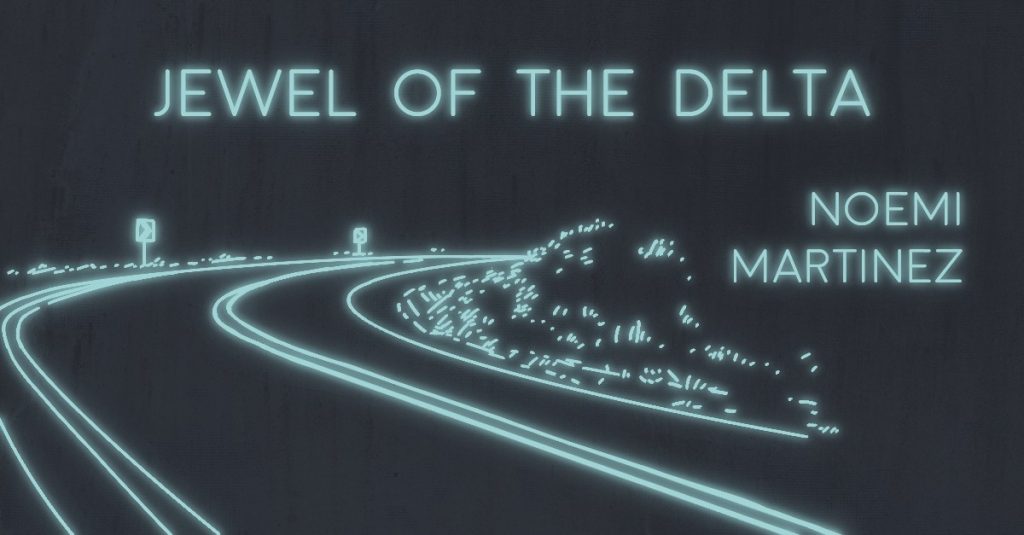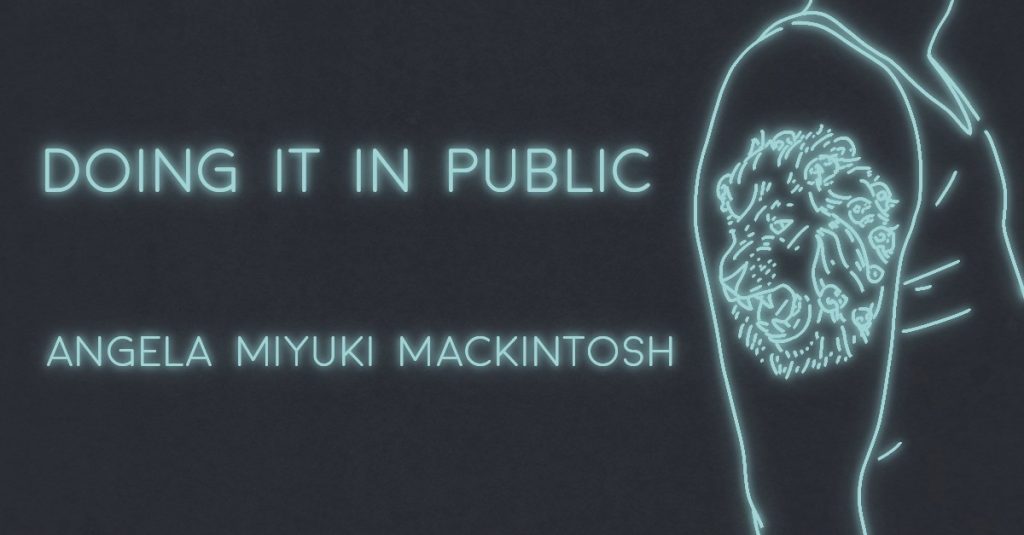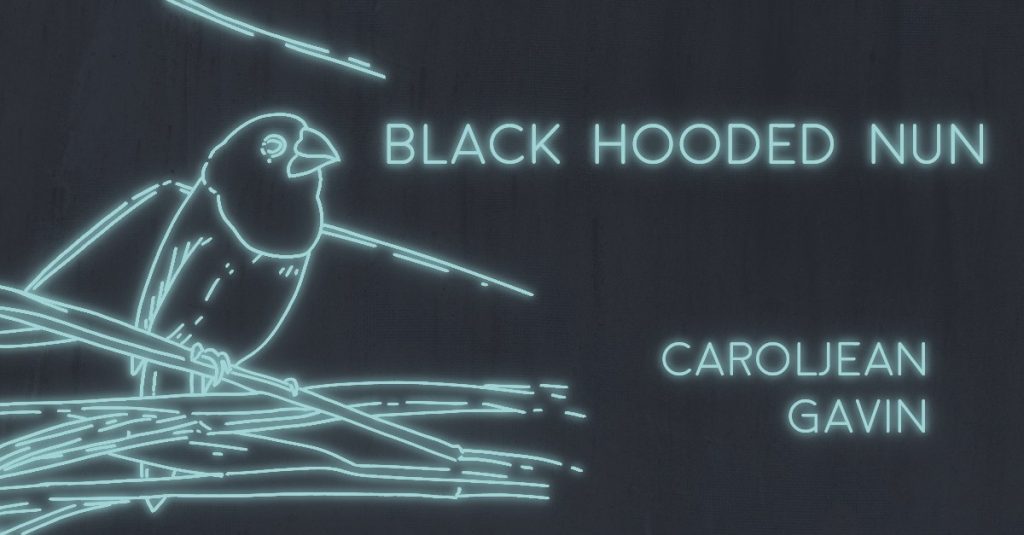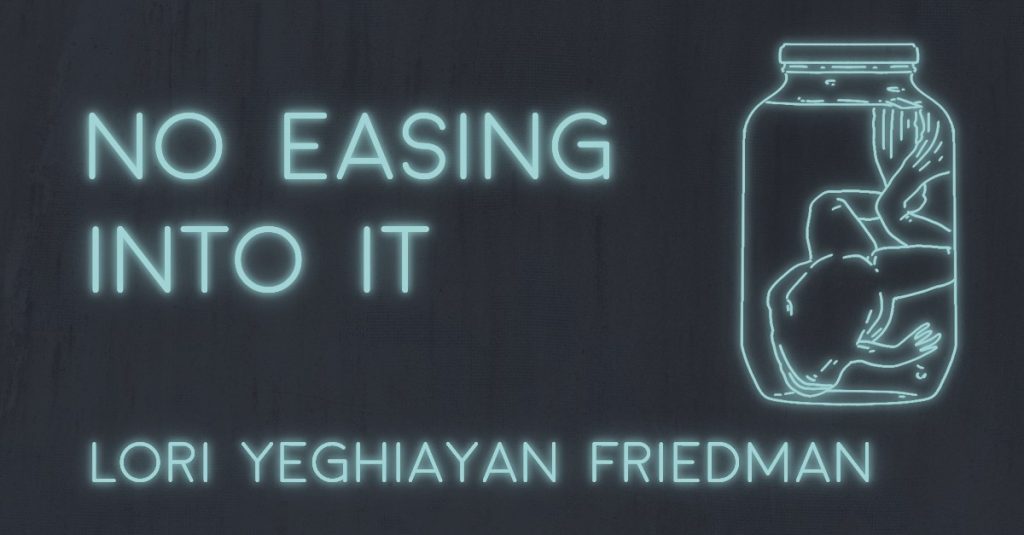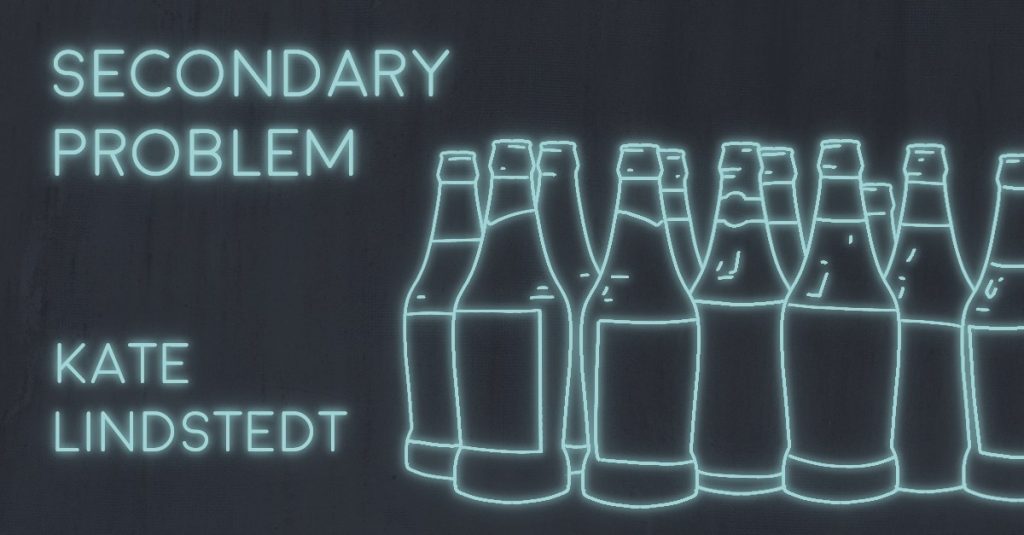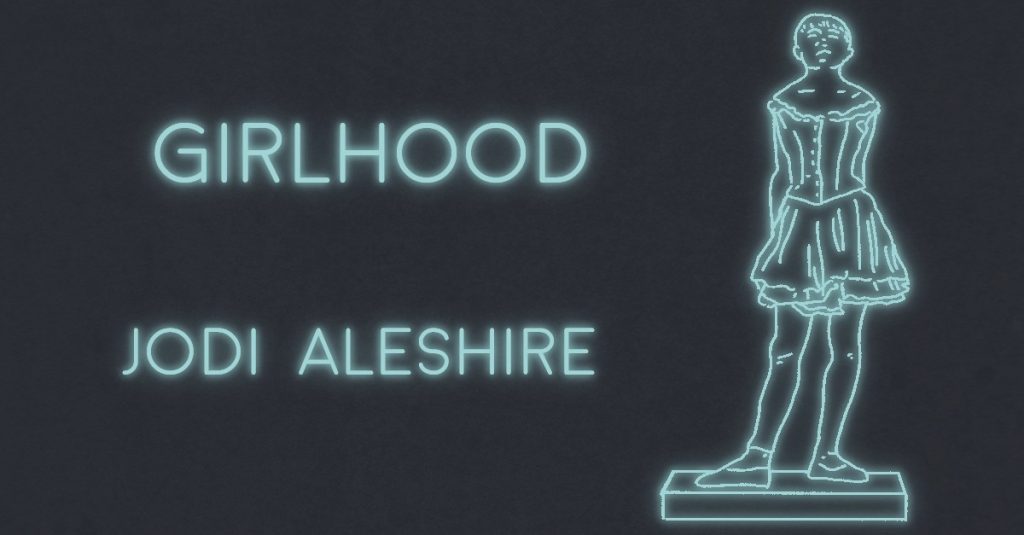
GIRLHOOD by Jodi Aleshire
A body washes ashore in the recommended section of my Spotify podcast radar. This isn’t the first or the fifth or the third time it’s happened and I’ve long since lost track of the tallies meant to keep them in check. Their faces have become nothing more than the black censored bars used with relish by shitty live television and their bodies, marionette pieces, hocks of meat articulated in a mockery of form. The podcast entices me to listen—a flashy title, a well-made header, a snappy byline—offer a glimpse into an abjection of innocence, voyeurism without the guilty intent. They tell me, words blinking in bright pink neon, THIS COULD BE YOU. This body is every body and everybody is just an accident waiting to happen, a crime scene waiting to happen, a byline on the nightly news just waiting to happen, a catchy warning to stay sexy and don’t get murdered just waiting to happen. Silly, stupid girl. Didn’t anyone ever tell you to carry your keys between your fingers?
In the mid-twentieth century, it wasn’t uncommon to pull bodies from peat bogs, mummified in the swampy murk. A glimpse into a world we hardly know, into barbarianism we think ourselves past. I find myself entranced by these bodies and their buried history and I’ve fallen in love with the Windeby Girl. Her skin mottled, ancient browns and aged like leather. Her hair shorn close to her skull, a blindfold over her eyes, hands bound. I’ve memorized the planes of her face. She’s beautiful, a bug trapped in amber, a tragedy frozen in time. They thought she’d been killed as punishment for adultery, the archaeologists who scoured her remains for a story; murdered. She couldn’t have been older than sixteen and I too once couldn’t have been older sixteen but that time is gone and I wish now that I could have been there in the muck and the cold and taken her hand, promised that things would be alright. I wish I could have been there as this woman-girl-child weighed down by planks and rocks, died. The memory of her murder is sour on my tongue and I wonder if anyone in the incensed masses thought to remember they were once children too.
A lifetime ago, I stood in the Chicago Art Institute, shifting my posture to mirror the stance of one of Degas’s thousands of dancers. She was a delicate, towering statue of bronze, her fabric tutu aged and weathered brown, his little dancer. My feet, turned to fourth position, lodged me in my place as I longed to touch her, to stroke my fingers over the cast of her hair. I pray she had a better life than the one history has written for the petit rats in the Parisian ballet. Men lurking in the wings with unburdened bodies and propositions. Girls, poised and bleeding, hungry. The sordid back halls of the Palais Garnier float, arabesque and haunting, through tunnels of memories that aren’t my own but I understand them, don’t we all understand them? What haven’t we all sacrificed to let the show go on? What haven’t we sacrificed to survive? I read once that Degas crafted multiples of his sculptures, built body after body until he was satisfied with the way her legs curled, her face quirked, her arms beckoned. This girl, this child in a world she was not meant for, is frozen in time and I cannot shake the feeling I would have loved her too, something desperate and open. How many versions of her were touched by unwanted hands; how many versions were thrown away?
I remember, still, the day I learned Marie Antoinette had only been a child when set onto the path that would kill her. Powder pale, throat bared for the bite of a blade. She was nothing more than another child-bride, nothing more than another lamb sent to the slaughter, her own body the meal and the means of making. Ribs split open on a rack, lock-picked open and apart. I wonder, some days when I feel only able for glutton, would we have been friends? Her and I, two children without childhoods, taken before we’re given a chance to taste anything more. Just wrist bones and knocked knees and butterfly lashes. We lavish her name with acts of treason without proof, qu'ils mangent de la brioche, but it’s bitter in my mouth. Did she ever have a chance to eat with her hands, unscrupled and unwatched, a girl once again? I think of her now in soft shades of periwinkle, robin’s egg, blue, in the fierce glint of a blade splitting the time between then and this, childhood and all that is left. Did she ever have a chance to know better? I try to remember her whole.
As a child, barely girl but not nearly woman, a decade or a century or a second ago, I remember tiptoeing down the hall of my best friend’s creaking farmhouse. I felt like I’d walked over someone’s grave. As we laid together, sprawled on his bed, he told me about the ghosts in the walls and the pain sunken into the bones of the house. His sister’s tragedy in the next room salting the earth and tainting the home. A child too. She never told their parents, because that wasn’t what good girls did, was it? In the present now, only a tightrope’s fall from the girl then, I think of all the women, the bones building up my exquisite corpse, all gone mad, robbed of something beating and vital. A rabbit quick pulse and magpie longing, girlhood is a fever-pitched dream. A poison. A butcher’s knife. A scalpel. A series of rungs on a ladder rotting under your hands. Flashpoint tragedies pinned, stigmata, linked through time. One day you’ll choke on everything you should have been, broken from the bell jar, thrown from the water. We were never given a chance.

